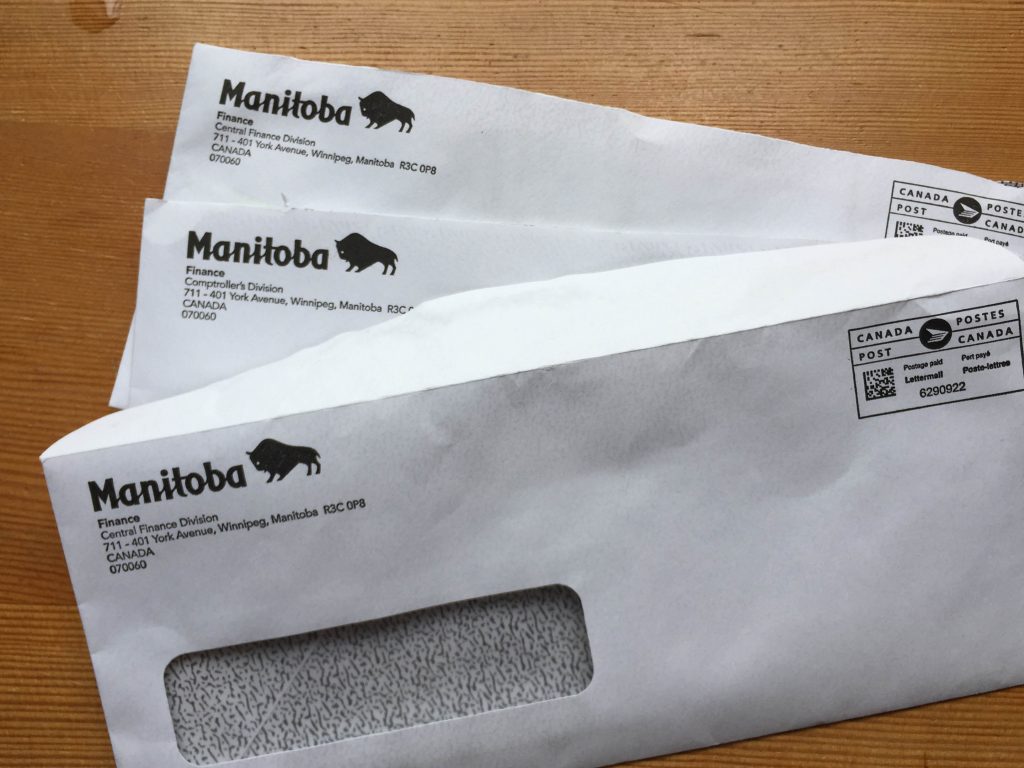Previously published on March 4th in the Brandon Sun and Winnipeg Free Press

The Manitoba government is playing a shell game: using federal and inflationary windfall revenue to give out tax cuts while neglecting public spending needs. Manitobans want the province to stop the tax cuts and adequately fund public services like education. Evidence shows that this investment, in our province with sky-high child poverty rates, will pay dividends well into the future.
Manitoba’s fiscal windfall results from high inflation rates boosting tax revenues and transfer payments. At the same time, government wage freezes and service cuts have reduced expenditures, damaging health, education and other public services. Public sector wages and working conditions are increasingly uncompetitive with the private sector, generating huge recruitment problems. Manitoba is poised for a budget surplus soon due to this austerity.
Equalization payments and the health and social transfer to Manitoba are increasing by $733 million this year. The very real possibility of a Conservative government soon in Ottawa would quickly end high federal equalization payments to Manitoba. Manitoba will receive $1.978 billion due to the new federal health agreement over the next 10 years, 35% of which is “untied,” so the province could spend it how it wishes – including giving more tax cuts.
Relying on the federal government and inflation to boost Manitoba’s revenues while cutting taxes is unsustainable and irresponsible.
Manitoba is under-funding health and education while giving regressive tax cuts to corporations and property owners: the wealthier property owners are, the more money they get back. In Budget 2023, Manitoba is slated to increase the education property tax rebate cheques to 50% of property taxes for $453 million. To date, the rebate cheques have cost $578 million. These rebates are financed by borrowed money; worse, the province has no plan to pay for a sustainable education system.
These tax cuts will lead to structural deficits or a permanent underfunding of core public services, compromising not only our ability to grow our economy.
Public education in Manitoba is funded by general revenue and education property taxes. The government has told school divisions they cannot increase the special levy, or division budgets will be clawed back. With property taxes capped by Bill 71, education funding is being cut.
The provincial contribution to public education funding has decreased from 62.5% of public school expenses to 58.4% from 2016/17 to 2020/21 (latest year data available). During those four years, $107 million was cut from education due to the province decreasing its share of funding. To make matters worse, provincial funding to public education has not kept up with inflation for over six years and is not funding adequately for growth in the student population due to natural population growth and immigration due to the war in Ukraine, for example.
The government’s own K – 12 Education Review supported more research on addressing poverty to improve educational outcomes. Extensive research shows socioeconomic status is the single most powerful predictor of educational outcomes: high school graduation rates in the lowest income quintile are roughly half those in the highest. The Final Report of the Poverty and Education Task Force released last Friday includes a comprehensive list of recommendations: school nutrition programs, better mental health services, transportation to school and more. Money spent on these items now will help children do better in school, graduate, find decent work and boost provincial productivity.
School divisions undergoing budget consultations are transparent about the hard choices brought on by the underfunding of public education: insufficient funding means bigger class sizes and less one-on-one help for children who need extra attention. Divisions are looking at cutting transportation for students when the Poverty and Education Task Force recommends that this is needed to help students get to school. Students in rural areas face increased time on buses to and from school – up to an hour each way. Due to cuts in funding, schools rely more often on fundraising from parents, which discriminates against schools in lower-socioeconomic areas and perpetuates the cycle of poverty.
If students struggling with poverty fail to graduate on time, they face more barriers going back to school to finish high school. Manitoba’s adult education programs are underfunded, with huge waitlists. This prevents adult learners, many parents with children in poverty, from improving their economic status.
All of this is shameful. Most Manitobans don’t want the property tax rebate cheques if it means cutting public services like education funding. A representative sample of Manitobans in a poll done by Probe Research found that most Manitobans (58%) want the provincial government to keep the money earmarked for the Education Property Tax Rebate and spend it on needed public services.
Budget 2023 is not too late to stop the education property tax rebate cheques and instead respond to the government’s reports to boost funding to education to deal with poverty. Manitoba should not rely on bonanza revenue to cut taxes and instead wisely invest this in public services that pay dividends to us all.
Molly McCracken is the Manitoba director of the Canadian Centre for Policy Alternatives, an independent, not-for-profit research institute.


